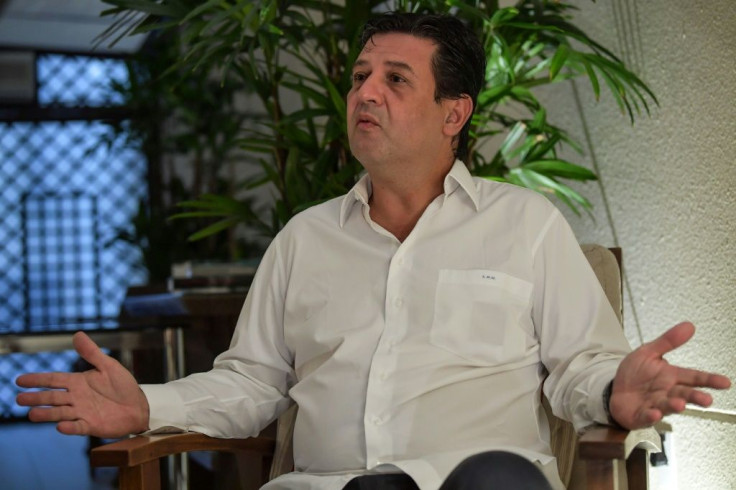Brazil Ex-health Chief Says Ministry 'Lost Credibility'
As Brazil's coronavirus outbreak started to turn ugly, then-health minister Luiz Henrique Mandetta calmly but firmly hewed to science and international best practice, preparing the country for an inevitable lockdown.
He soon found himself out of a job.
President Jair Bolsonaro fired the 55-year-old doctor in April, after repeatedly clashing with him over what the far-right leader called the "hysteria" of the virus response.
Brazil has since become the country with the second-highest number of infections and deaths worldwide, after the United States.
Bolsonaro went through another health minister, also a doctor, in less than a month, before settling on an interim replacement: Army General Eduardo Pazuello.
In an interview with AFP, Mandetta, who remains widely popular, said his former ministry had "lost its credibility" under Pazuello, who has no medical background and has named some 20 fellow military officers to top posts.
"It's disappointing. We doctors don't know much about war. And generals don't know much about health. But history will be the judge. The (coronavirus) numbers will tell the real story. If they're not censored."
"Changing the methodology breaks people's trust. The last thing you want to do in an epidemic is lose the health ministry's credibility, because credibility is what gives you authority... It's unfortunate they lost that credibility based on data, transparency and full disclosure."

"I said we would only recommend (hydroxychloroquine) when there was scientific proof (of its effectiveness). It's not about being for it or against it. But they're following a military strategy. When the president, who was an army captain, tells the minister, who is a general, to issue that kind of recommendation... we're talking about two people who don't have a background in health care, who approach it with a political and military logic.
"Unfortunately, the health ministry today is not playing the role of managing health. It's a ministry under military occupation."
"There are local polls in four months. Mayors are making decisions based on election-year pressure. And of course, there is economic pressure, too.
"Some states have better health systems and better advisers than others. It's a country of many contrasts. We'll see what happens. But I'm apprehensive."
"No."
"No."
"I think we have a duty as citizens to actively participate in the elections, whether as candidates or as citizens. I haven't ruled it out."
© Copyright AFP 2024. All rights reserved.





















